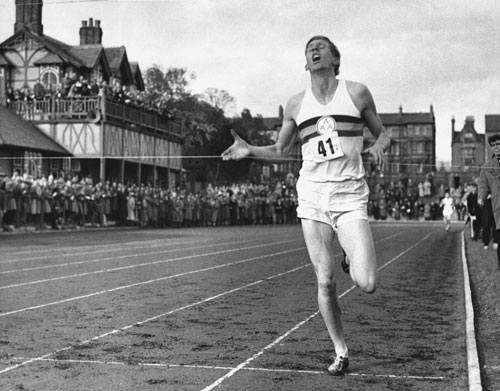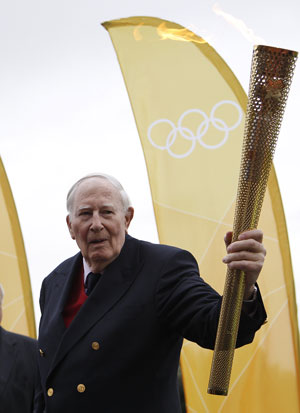At 16 I was focused on getting to Oxford. No member of my family had studied there. It was quite difficult to get into Oxford then. I was impatient to leave school for reasons I’m not sure of now, but I was keen to get on with my medical career.
I’d tell my younger self he could and should learn more from his parents. I was rather independent then, though my parents did encourage me. I was always very active and involved in things. I threw myself into everything when I was at school, then when I was at university – president of the sporting club and the students’ union. I always felt I must exploit the opportunities my parents hadn’t enjoyed to the full. And Oxford is a wonderful place.
It seemed to be the fashion in Oxford to have a sport so I went along to the track, paid my guinea, and joined the athletics club. I didn’t run very fast at first – I was included in the team because I’d been seen diligently shovelling snow. In my first big race I was the third string runner. I was told just to keep out of the way. But with 200 yards to go I felt I could still run faster. So I proceeded to overtake everyone and won by 10 or 15 yards.
I didn’t run very fast at first – I was included in the team because I’d been seen diligently shovelling snow
It was a windy day on May 6 1954 in Vancouver, when I went to run in the Empire Games. The conditions weren’t good. I only decided I was going to go for it half an hour before the race. My coach said to me, ‘if you don’t take the chance when you get offered it you might regret it for the rest of your life’. In the end I ran in three minutes 59 seconds. I heard the announcement of the times over the tannoy, by Norris McWhirter, founder of the Guinness Book of Records. When he got to ‘a new world record, at three…’ the crowd suddenly roared and nobody heard the seconds.
I think the record was important to Britain. There was a feeling after the war that Britain was finished. We had borrowed extensively from America and had to pay huge debts. We’d lost an Empire. So we did things. We had the Festival of Britain in 1951. We had the climbing of Everest in 1953. We won nothing at the Helsinki Olympics in 1952, so everyone was very disappointed in me and the others. I knew I couldn’t retire on such a disappointing note so I had to stick with the running just a little longer.











